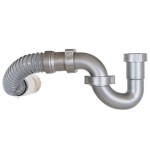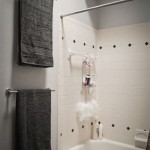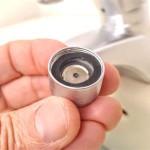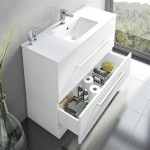Is It Safe To Drink From Your Bathroom Tap?
The question of whether bathroom tap water is safe to drink is a common one, often met with varying degrees of certainty and apprehension. Several factors influence the potability of this readily available water source. Understanding these contributing factors allows for a more informed decision regarding its consumption.
Water Source and Treatment
The primary factor influencing bathroom tap water safety is the original water source and the treatment it undergoes before reaching the home. In most developed countries, municipal water supplies are treated rigorously to eliminate harmful bacteria, viruses, and parasites. This treatment typically includes filtration, disinfection, and regular testing to ensure compliance with established safety standards. If the source water is already of high quality and undergoes thorough treatment, the water reaching the bathroom tap is generally considered safe for drinking.
Plumbing System Integrity
Beyond the municipal treatment process, the home's internal plumbing system plays a significant role in water quality. Older homes may contain lead pipes or lead solder in copper pipes. Lead can leach into the water, posing a health risk, especially for children and pregnant women. Corrosion within galvanized steel pipes can also introduce rust and other metallic contaminants into the water supply. Regularly checking for and addressing any plumbing issues, including leaks and corrosion, is crucial for maintaining water quality at all taps, including those in the bathroom.
Bathroom Faucet Construction
The materials used in bathroom faucet construction can also influence water safety. Like older plumbing systems, some faucets may contain lead components, potentially leaching the metal into the water. Modern faucets are often constructed with lead-free materials, significantly reducing this risk. Checking the faucet manufacturer's specifications can provide information regarding its lead content. Furthermore, stagnant water sitting in the faucet can harbor bacteria; it's often advisable to let the water run for a short period before consumption, especially after extended periods of non-use.
Water Heater Temperature
The water heater plays an indirect role in bathroom tap water safety. Maintaining the water heater at a temperature of at least 140°F (60°C) helps control bacterial growth within the tank and throughout the plumbing system. However, excessively high temperatures can increase the leaching of metals, particularly from older pipes and fixtures. Finding the right balance between preventing bacterial growth and minimizing metal leaching is essential.
Water Quality Testing
The most definitive way to determine bathroom tap water safety is through testing. Home water testing kits are readily available and can detect the presence of various contaminants, including bacteria, lead, and other heavy metals. Professional laboratory testing provides a more comprehensive analysis and is recommended for a thorough assessment of water quality. Regular testing, particularly in older homes or those with known plumbing issues, offers valuable insights into the water's potability.
Point-of-Use Filters
Even with municipal water treatment and a well-maintained plumbing system, some individuals may prefer an additional layer of filtration. Point-of-use filters, such as those attached to the faucet or installed under the sink, can further reduce sediment, chlorine, and other impurities, improving taste and odor while providing additional assurance of safety. Different filter types are available, addressing specific concerns, such as lead removal or bacterial filtration. Selecting the appropriate filter depends on the individual's needs and the specific water quality concerns.
Local Water Reports
Local water utilities regularly publish consumer confidence reports (CCRs) that provide detailed information about the source water, treatment processes, and detected contaminants. These reports offer valuable insights into the overall quality of the municipal water supply and can help assess the general safety of the water reaching the bathroom tap. Reviewing these reports can offer peace of mind or highlight potential areas of concern that warrant further investigation or individual filtration measures.

Is It Safe To Drink Water From Your Bathroom Tap

The Health Risks Of Drinking From Your Bathroom Tap Total Soft Water

Why You Should Never Drink Water From The Bathroom Tap Daily Mail

Experts Explain Why Drinking Water From Your Bathroom Tap Could Pose A Health Risk Chronicle Live

Is Bathroom Water Safe To Drink Victoriaplum Com

Is Bathroom Water Safe To Drink Victoriaplum Com

Is It Safe To Drink Bathroom Tap Water

Is It Okay To Drink From Your Bathroom Tap Cleanipedia Za
How To Tell If Water Is Safe Drink Or Contaminated

Is It Safe To Drink Bathroom Tap Water
Related Posts







